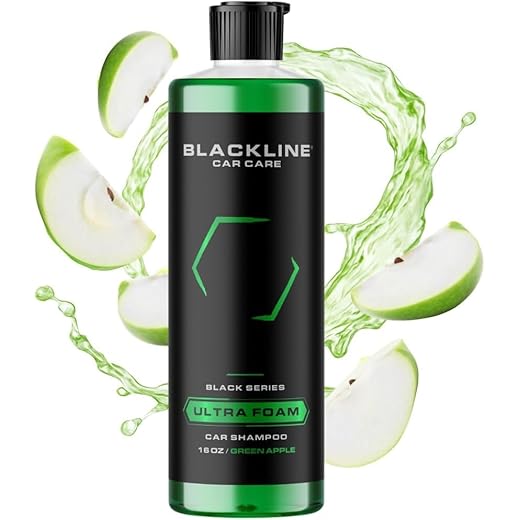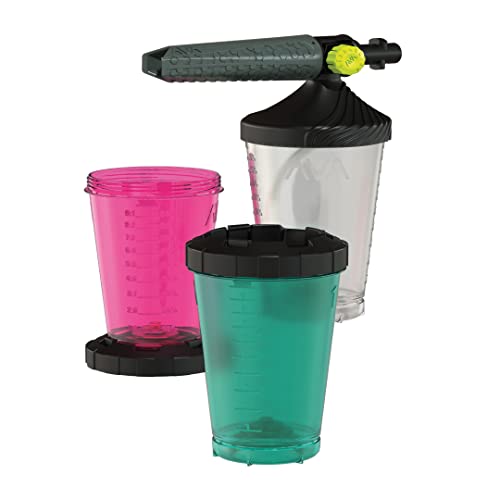



For optimal performance, I recommend selecting a detergent specifically designed for the task at hand. Look for formulations that are compatible with your machine; many manufacturers offer their own branded cleaning agents. These products are engineered to work effectively with the pressure and water flow of your equipment, resulting in superior cleaning outcomes.
It’s crucial to check the pH level of the cleaning solution. A neutral pH cleaner is generally safe for a variety of surfaces and will not cause corrosion or damage. For challenging stains, consider solutions with enzymatic properties or those that are specially formulated for particular materials, like concrete or wood.
Always follow the manufacturer’s guidelines regarding dilution ratios. Concentrated products often require precise mixing. Using a standard soap without proper adjustments can create excess foam or inadequate cleaning strength, potentially damaging the machinery.
Keep in mind that environmentally friendly options are also available. Many brands now offer biodegradable formulas that are just as effective while being less harmful to the surrounding environment. Choosing wisely not only benefits your surfaces but also contributes to sustainable cleaning practices.
Recommendations for Cleaning Agents in High-Pressure Cleaning Equipment
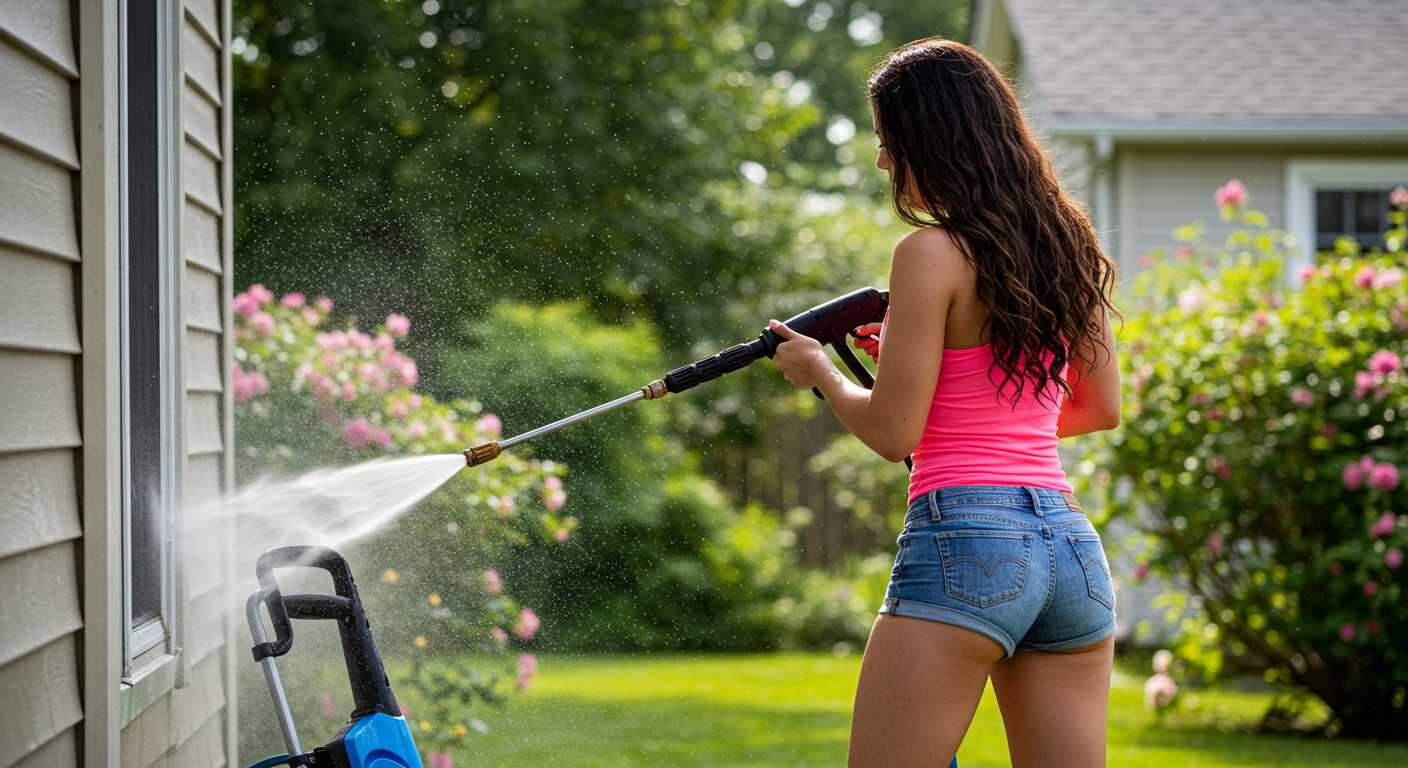
For optimal results, consider the formulation based on your specific task. A range of products exists tailored for various surfaces and cleaning challenges.
| Surface Type | Recommended Formulation | Notes |
|---|---|---|
| Concrete and Pavers | Alkaline Cleanser | Highly effective for oil stains and ground-in dirt. Ensure thorough rinsing. |
| Cars and Vehicles | pH-Neutral Cleaner | Gentle on surfaces, protects wax and paint. Ideal for regular maintenance. |
| Wood Decks | Biodegradable Formula | Safe for the environment, helps lift dirt without damaging wood. Follow manufacturer’s instructions for dilution. |
| Fences and Siding | Mildew and Fungus Remover | Effective against mould and mildew. Pre-treat heavily contaminated areas. |
| Brick and Masonry | Acid-Based Cleaner | Removes efflorescence and mineral deposits. Use with caution and proper PPE. |
Ensure to follow manufacturer’s guidelines for dilution ratios and application methods. Testing on a small area before full application helps avoid unforeseen damage.
Always prioritise safety. Wear appropriate protective gear and ensure proper ventilation during use, especially with strong formulations.
Understanding Pressure Washer Soap Requirements
For optimal results, employing a specially formulated cleaning agent is crucial. Selecting the product that’s compatible with your machine significantly enhances performance. It’s advisable to seek cleaners designed for your specific model, as generic options may lead to issues.
Key Factors to Consider
- Surface Compatibility: Ensure the cleaner matches the surface you’re tackling, whether it’s concrete, wood, or vehicle paint.
- Cleaning Power: Assess the concentration level, as stronger mixtures often yield quicker results. However, moderation is key to prevent damage.
- Foaming Action: High-foaming solutions cling better to surfaces, allowing for effective dirt removal during the washing process.
- Biodegradability: Opt for environmentally friendly formulations that won’t harm plants or nearby animals.
- Brand Recommendations: Certain manufacturers offer specific formulations that enhance the life and efficiency of their equipment.
Application Techniques
Utilising the right application method can make a notable difference. Here’s how I approach it:
- Dilute the cleaner as per the instructions on the label for optimal concentration.
- Apply the mixture through the correct nozzle, ensuring even coverage across the surface.
- Let it sit for a few minutes to break down grime before rinsing.
Utilising the correct agent not only cleans effectively but also prolongs the lifespan of your equipment. Following these guidelines guarantees optimal cleaning performance.
Different Choices of Cleansers for High-Pressure Equipment
Choosing the right cleansing agent significantly impacts the cleaning outcome. I recommend considering the following options based on specific tasks:
- Alkaline Solutions: These work well for greasing and oil removal. Ideal for garage floors and outdoor machinery, their basic nature effectively breaks down stubborn residues.
- Acidic Cleaners: Use these for mineral deposits and rust stains. They excel on hard surfaces like patios and driveways, providing a thorough clean where other options fall short.
- Biodegradable Formulas: If environmental concerns are paramount, opt for plant-based formulations. They clean effectively while being safe for surrounding vegetation and waterways.
- Foaming Agents: Best for vertical surfaces, they cling longer and enhance the cleaning process. Great for vehicles or house exteriors, they allow dirt and grime to loosen before rinsing.
- Specialty Products: Certain formulations target moss, mould, or mildew. Selecting these for outdoor cleaning can significantly improve results in shaded or damp areas.
Mixing agents with water typically yields better efficiency. Always check the manufacturer’s guidelines to ensure compatibility with your equipment. This ensures optimal performance while safeguarding your investment.
Assess the specific cleaning needs before selecting a product. Testing on a small surface first can prevent potential damage to finishes or materials. Experimenting with different cleaners not only enhances results but also provides insights into their effectiveness for various tasks.
Choosing Biodegradable Cleaners for Environmental Safety
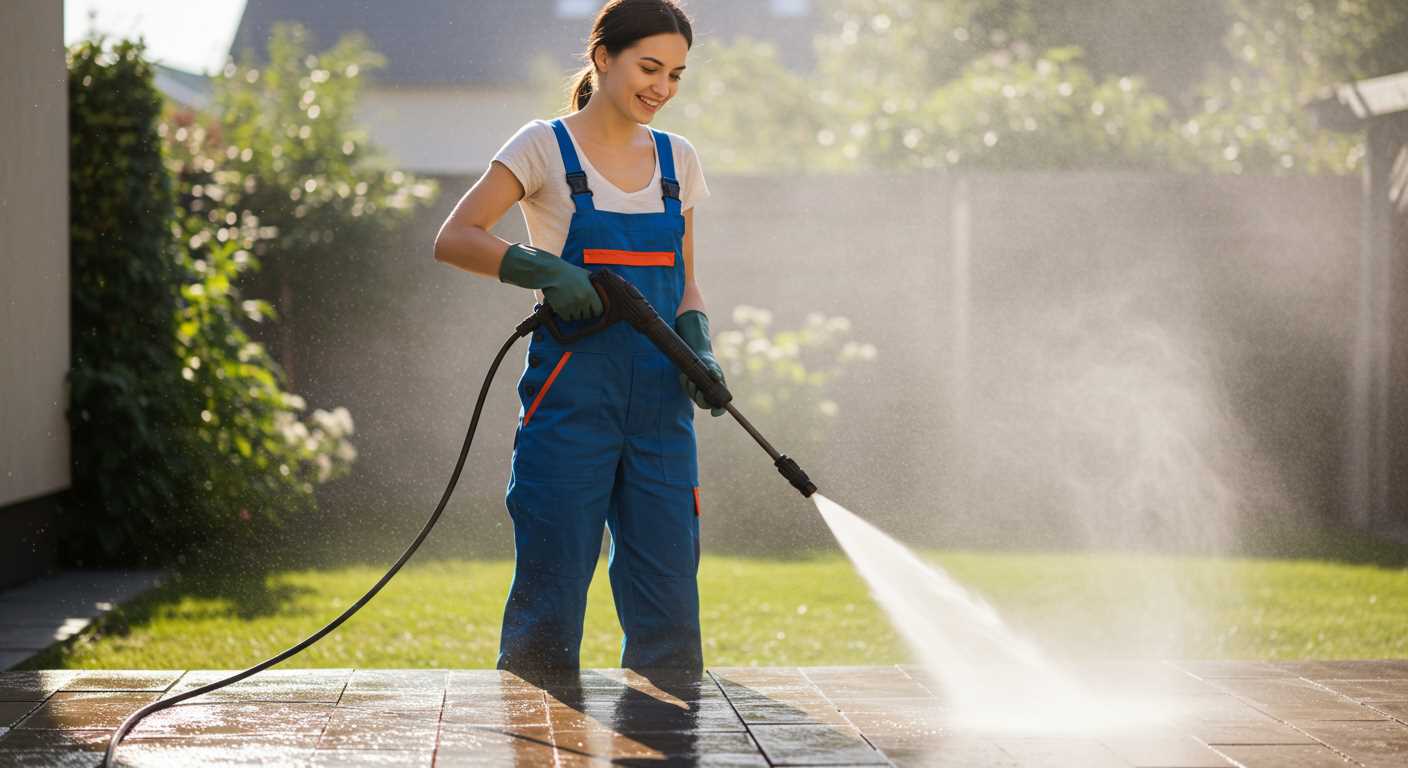
Prioritising eco-friendly cleaners is a pivotal choice, especially given the escalating concerns around environmental deterioration. Biodegradable substances break down naturally, significantly reducing their impact on ecosystems. I always recommend selecting formulations certified as biodegradable, as they are less likely to harm aquatic life and soil health when rinsed away.
When assessing potential products, scrutinise the ingredient list. Avoid harsh chemicals such as phosphates or chlorine, which can lead to pollution. Instead, opt for those with plant-based surfactants. Brands often highlight their commitment to sustainability by offering green certifications, instilling confidence in their environmental performance.
Additionally, consider packaging. Eco-conscious companies frequently utilise recyclable materials, thus minimising waste. Supporting such brands not only promotes safer cleaning but also encourages more manufacturers to adopt sustainable practices.
For efficacy, research reviews and product comparisons to ascertain that the biodegradable options deliver satisfactory results without compromising cleanliness. A clean environment doesn’t have to come at the expense of the planet; with the right selections, I ensure both standards are met in my cleaning routine.
Determining the Right Concentration for Your Soap

The correct dilution is critical for achieving optimal cleaning performance without damaging surfaces. Always adhere to the manufacturer’s recommendations found on the product label. Generally, the standard concentration ranges from 1:10 to 1:20, depending on the level of grime you are dealing with.
General Guidelines
For light cleaning tasks, such as washing vehicles or lightly soiled patios, a weaker mix (around 1:10) suffices. For more challenging stains like mildew or oil, consider a stronger formula, typically around 1:5. Always start with less concentrated mixtures as they pose a lower risk of damage.
Testing Before Application
Conduct a patch test on a small, inconspicuous area. This approach helps assess the cleaning power and surface compatibility without risking damage. Adjust the concentration based on results, ensuring to find a balance that effectively removes grime without harming surfaces.
In cases where natural cleaning solutions are preferred, a higher concentration of biodegradable alternatives may be necessary due to their gentler formulation. Keep in mind that these may require more time for effective cleaning, thus impacting your overall efficiency.
Identifying Soap Solutions for Specific Cleaning Tasks
For degreasing engines and machinery, opt for a heavy-duty alkaline cleaner, ideally one formulated for industrial use. These solutions break down stubborn oil and grease effectively without damaging sensitive components.
When tackling mould and mildew on patios and decks, select a biocide-infused formula. These products not only eliminate unsightly growth but also inhibit future regrowth, ensuring long-lasting cleanliness.
For vehicle maintenance, a pH-neutral formula designed specifically for automotive surfaces is best. This type prevents damage to wax and sealants while providing a thorough clean without streaks. Look for solutions that have been validated by automotive care experts.
Surface-Specific Approaches
Wood surfaces, such as decks and fences, benefit from a gentle cleaner that contains surfactants aimed at lifting dirt without stripping natural oils. Avoid harsh chemicals that could damage the wood fibres.
For concrete, a strong acidic cleaner is effective as it penetrates porous surfaces, removing ingrained grime and stains. Ensure you follow up with a neutralising agent to restore the surface’s pH balance.
Evaluating Product Labels
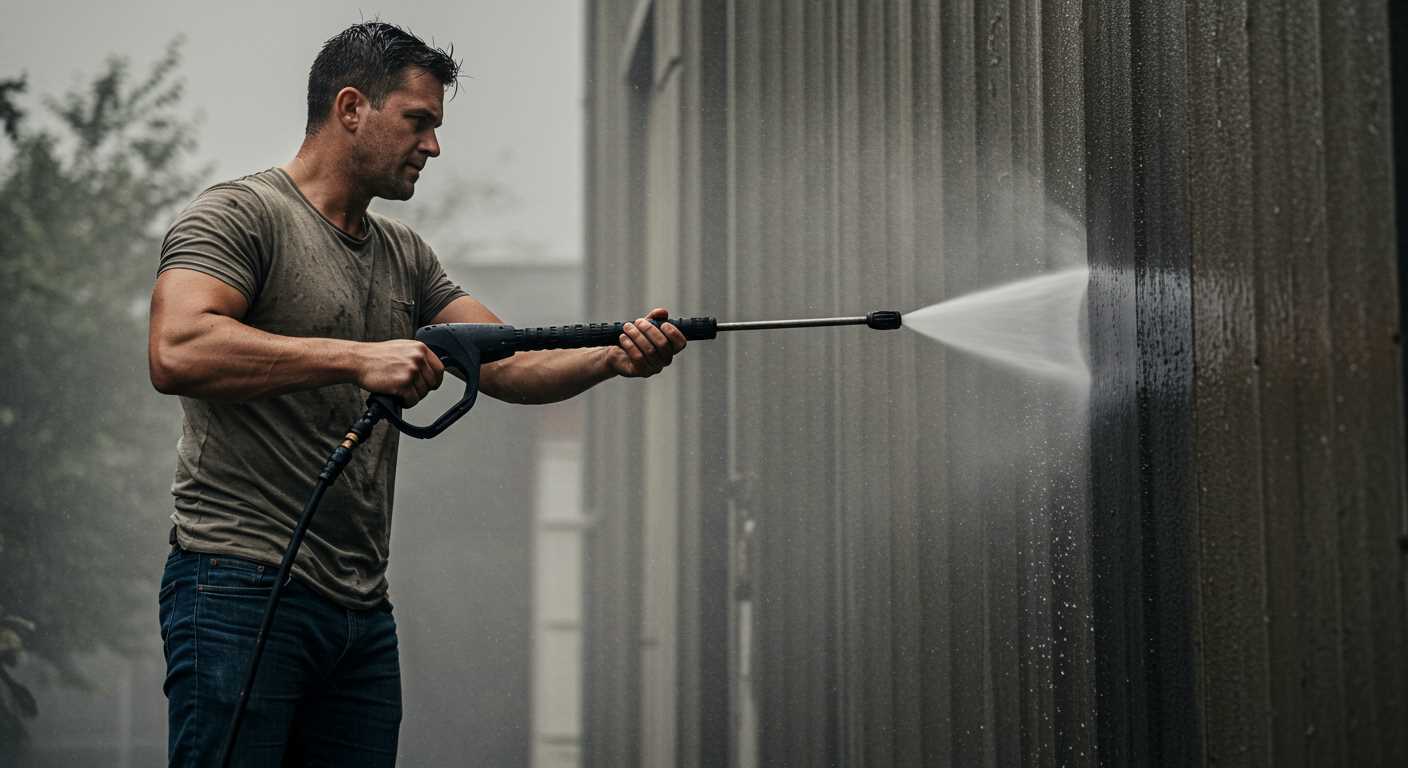
Always scrutinise product labels for compatibility with your cleaning equipment. Some solutions may be marked as suitable for specific machines or pressures, while others can damage internal components if misapplied. Look for brands with a history of satisfactory performance in your task category.
Potential Risks of Using Household Solutions in High-Pressure Cleaners
Employing household cleaning agents in high-pressure devices can lead to several problems that affect both equipment longevity and cleaning performance. Here are the primary concerns:
- Corrosion: Many common domestic cleaners contain ingredients that can corrode metal components. This wear can drastically reduce the lifespan of the machinery.
- Foam Build-Up: Household formulations often produce excessive foam, clogging the nozzle and hoses, which may impair functionality and lead to malfunctions.
- Residue: Non-commercial detergents can leave residues that attract dirt, undermining the cleaning results and requiring additional labour for removal.
- Environmental Compliance: Some domestic products may not meet environmental regulations, causing potential legal issues in certain regions.
- Health Hazards: Inhalation or skin contact with certain chemicals can pose health risks, especially when used in high concentrations.
- Compatibility Issues: Many homemade mixes or standard cleaning agents can damage seals and hoses, leading to leaks and costly repairs.
Choose specialized formulations designed for high-pressure equipment to mitigate these risks. Investing in compatible products will enhance performance and protect your investment in cleaning equipment.
Integrating Soap into Your Pressure Washing Routine
For optimal results, I recommend mixing the chosen cleaner with water before adding it to your machine’s reservoir. This ensures proper dilution, which is crucial for achieving effective cleaning without damaging surfaces. Follow the manufacturer’s instructions regarding the correct mixing ratios to avoid any mishaps.
Begin by applying the mixture with a low-pressure setting to avoid oversaturation of surfaces. This allows the cleaner to adhere effectively, breaking down dirt and grime without excessive force. Allow the solution to sit for the recommended duration, typically around 5 to 10 minutes, to give it time to penetrate tough stains.
Once the cleaning solution has had time to act, increase the pressure for rinsing. This two-step process–application followed by a thorough rinse–maximises cleaning efficiency and ensures the removal of all residues. Make certain to use a wide-angle nozzle during rinsing to spread the water evenly and prevent damage to the surface.
Additionally, consider your cleaning schedule. Regular application of suitable products can help maintain surfaces in pristine condition, reducing the need for intensive cleaning later. Always test on a small, inconspicuous area before full application to ensure compatibility with the material being cleaned.
Finally, ensure thorough rinsing of the equipment after each session to prevent any build-up inside the reservoir or hoses. Regular maintenance of your cleaning gear will prolong its lifespan and enhance overall performance.
Recommendations for Popular Soap Brands and Formulations
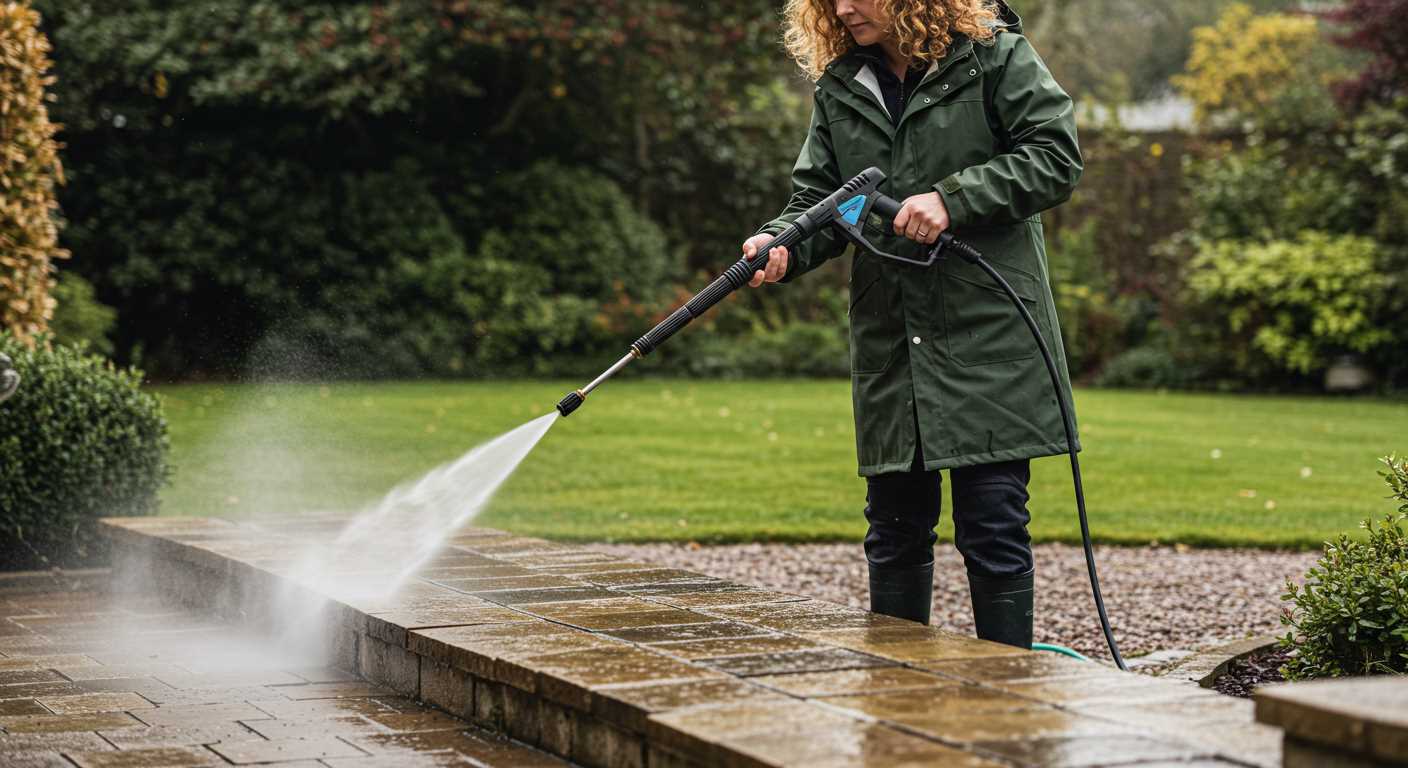
Based on extensive testing, I highly recommend considering the following brands known for their reliable products suited for machinery cleaning tasks:
Top Brands
| Brand | Formulation Details |
|---|---|
| Karcher | Specialised detergents designed for various surfaces, including patios and vehicles, known for good performance and safe use with their machines. |
| Sun Joe | Offers a range of eco-friendly and biodegradable options that effectively tackle grime while being gentle on the environment. |
| SC Johnson | Their formulas often include powerful degreasers, perfect for tougher cleaning jobs like oil stains on driveways. |
| Simple Green | Known for non-toxic and biodegradable formulations, effective on a variety of surfaces, from wood to metal. |
Specialised Formulations

For unique cleaning needs, consider these specific formulations:
- All-purpose cleaner: Ideal for general household exterior cleaning.
- Concrete cleaner: Specifically designed for tougher stains on hard surfaces.
- Vehicle shampoo: Gentle formula that won’t harm car finishes or waxes.
Sticking with these recognised brands can ensure efficient and safe cleaning results. Additionally, checking for user reviews on specific products can provide further insight into their performance in real-world applications.
FAQ:
What types of soap are suitable for pressure washers?
When using a pressure washer, it is important to select the right type of soap to ensure effective cleaning without damaging the equipment. Generally, you should use detergents specifically formulated for pressure washers. These soaps often come in concentrated forms and are designed to be diluted with water. Common types include car wash soap, all-purpose cleaners, and biodegradable soaps. Avoid using dish soap or household cleaners, as they may create excessive foam or clog the pressure washer.
Can I use regular household soap in a pressure washer?
No, it is not advisable to use regular household soap, such as dish soap or laundry detergent, in a pressure washer. These soaps are not formulated for the high-pressure environment and can lead to excessive foaming, which may damage the machine and reduce its cleaning efficiency. It is best to stick to soaps specifically designed for pressure washing to ensure optimal performance and to maintain the longevity of the equipment.
How do I properly dilute soap for use in a pressure washer?
The dilution of soap for a pressure washer will depend on the specific product you are using, as different brands may have varied instructions. Generally, the soap should be mixed with water in a separate container before adding it to the pressure washer’s detergent tank. A common ratio is typically one part soap to five parts water, but always refer to the manufacturer’s instructions on the soap bottle for the best results. Once mixed, ensure that the solution is well combined before filling your pressure washer. This will help to achieve effective cleaning results without causing damage to the machine.



